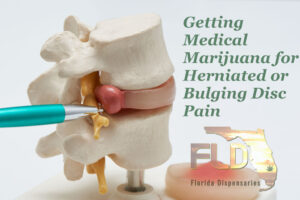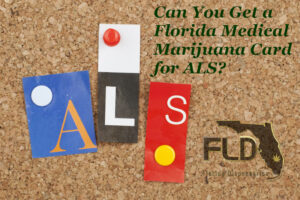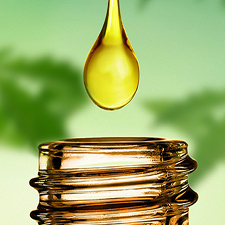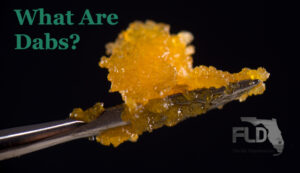
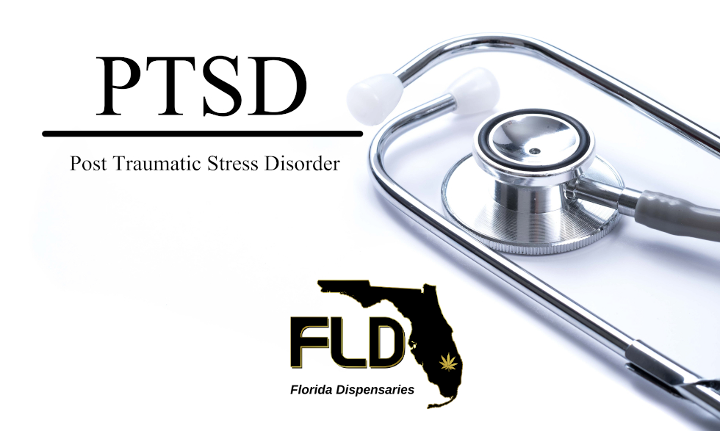
Using Cannabis for PTSD treatment in Florida
PTSD is one of the qualifying medical conditions to receive a medical marijuana card in Florida. In this post, we will discuss some of the pros and cons of using medical marijuana to treat PTSD and offer some recommendations regarding its use.
Florida’s PTSD patients are turning to the state’s medical marijuana program in large numbers for relief from this insidious ailment. In fact, 22 percent of combustible marijuana products in Florida are being sold to patients suffering from PTSD (aka post-traumatic stress disorder).
The Covid-19 pandemic has seen stress levels on the rise. The number of PTSD patients in the state is growing exponentially. Along with it, so is the number of medical marijuana cards being issued in Florida. In January of 2020, Florida had just under 300,000 medical marijuana patients. As of October 2020, that number has risen to more than 424,000. That’s a 41 percent increase in just nine months.
Recently, Florida House Speaker Jose Oliva proposed the idea of limiting THC levels in medical cannabis to 10 percent — a move that could have been a setback for veterans with PTSD who rely on medical marijuana for relief from their debilitating condition.
In response, Senator Jeff Brandes, a Republican, Iraqi-war veteran, and long-time medical marijuana advocate voiced his opinion at a news conference at the Capitol. Brandes claimed that “limiting THC would reduce the effectiveness of cannabis and would cause many veterans to rely on unsafe, untested options, including moving to the illicit market to manage their needs.”
Fortunately for Florida’s PTSD patients, the effort to cap THC levels failed and the tide seems to be turning in favor of medical marijuana patients in the state.
Using Medical Marijuana To Treat PTSD
If you or a loved one has been diagnosed with PTSD, no doubt you are well aware of its implications and multiple symptoms. You don’t need us to tell you about the disease. However, many PTSD sufferers are lacking the information they need to decide if medical marijuana can offer some measure of relief and how best to utilize it.
Many PTSD patients have experimented with cannabis without consulting a medical marijuana doctor only to find that it exacerbates their anxiety and increases paranoia. Some end up abandoning the idea altogether.
The truth is that there are several variables at play with medical marijuana. Some strains have multiple cannabinoids and terpenes. Certain combinations of cannabinoids and terpenes might contribute to the problem. Furthermore, the delivery method and dosage are also crucial factors in determining whether marijuana is suitable for the treatment of PTSD.
Attempting to ascertain the best strains of medical cannabis, the correct dosage, and the best delivery method can be challenging for many PTSD patients.
It’s important to point out that every patient is different. Their bodies are different, the cause of their condition is different, and their lifestyles are different. There is no one strain, dosage, or delivery method that will work for all PTSD patients.
In particular, some PTSD patients can respond negatively to high doses of THC — the cannabinoid found in marijuana that causes a high. Used in high doses, THC is infamous for producing feelings of paranoia. However, some patients might find that THC used at night can help to reduce nightmares often associated with PTSD.
Medical marijuana also contains a second, potent, non-intoxicating compound called cannabidiol, or CBD, that has been shown to provide many patients with relief from anxiety.
As a result, PTSD patients might choose to purchase more than one strain of cannabis to treat their condition — one for daytime use that’s low in THC, and another for bedtime use with higher THC levels.
Another important consideration for PTSD patients who wish to try medical marijuana is the delivery method. For example, the effects of smokable marijuana are almost instantaneous. Because PTSD can oftentimes produce sudden onset of symptoms, smoking is a popular option. For others concerned with their respiratory health, smoking is not an option.
Vaping cannabis oil also offers a fast onset time and is known for its high bioavailability. However, as with smoking, vaping can aggravate respiratory issues and should be used with caution.
Another drawback of smoking and vaping is that measuring dosage can be difficult. If dosage is important, then edible cannabis products might be a better option. However, edibles have a slower onset time and provide a much lower bioavailability than smoking or vaping, so a higher dosage is required to produce the same effects. Moreover, edibles might be acceptable at bedtime but won’t help relieve the sudden onset of symptoms.
Capsules and tinctures both accurate dosing and a faster onset time than edibles. Tinctures, taken sublingually (under the tongue), provide more rapid relief, as they absorb directly into the bloodstream via capillaries in the lining of the mouth.
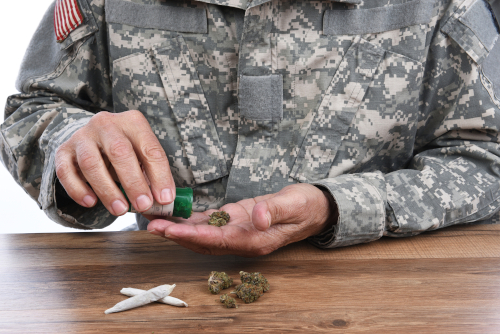
Which Marijuana Strains Are Good For Treating PTSD?
Quite often, physicians treating PTSD patients will recommend the patient start out with a high-CBD strain and limit the use of THC to nighttime. However, some patients in Florida with PTSD, report that a mixture of CBD and THC improves their condition.
Strains which are high in CBD include:
- CBD Mango Haze (1:1–2:1 CBD and THC)
- CBD Critical Cure (2:1)
- Harlequin (5:2)
- ACDC (20:1)
- Ringo’s Gift (24:1)
- Stephen Hawking Kush (5:1)
High Florida THC strains which are commonly used to treat PTSD include:
Florida Strain Library – FLD
Hemp CBD Flower Strain Library – CBDbay
How to get a Florida Medical Marijuana Card
In order to obtain a Florida medical marijuana card, PTSD patients must be approved by a state-certified physician. The first step is to contact a local medical marijuana office to determine if the patient is qualified. If it is determined via a phone consultation that the patient is eligible, the office will set an in-person appointment for an examination.
If the patient is approved the attending physician will enter the patient into the state’s medical marijuana registry. The patient must then log onto the registry and complete an application. (A paper application is also available.)
If the application is approved, the patient will immediately be able to purchase medical marijuana from a licensed dispensary using their driver’s license or state-issued ID while awaiting their patient identification card to arrive in the mail.
A Florida medical marijuana card is good for one year from the date of approval. Follow-up appointments may be required by the physician.
Regardless of a PTSD patient’s preferred method of medical marijuana consumption, it’s wise to consult with a state-certified medical marijuana doctor for advice in determining the ideal strains and delivery methods for the particular individual’s PTSD symptoms and lifestyle.
Contact
The Office of Medical Marijuana Use is open weekdays, 8 am – 6 pm, EST (excluding state holidays)
- Phone 800-808-9580, 850-245-4657
- Fax 850-487-7046
- E-mail MedicalMarijuanaUse@flhealth.gov
- Address Office of Medical Marijuana Use, PO Box 31313, Tampa, FL 33631-3313
Sources and Additional Reading
- NCBI: Cannabidiol as a Potential Treatment for Anxiety Disorders
- How CBD Helps Treat PTSD – MedCard
- Cannabis Helps PTSD – MedCard
- VA: Marijuana Use and PTSD among Veterans
- Telemedicine extended for medical marijuana card renewals
- Florida Marijuana Sales Skyrocket Even as Economy Collapses
- Marijuana Policy Project – Florida marijuana news


